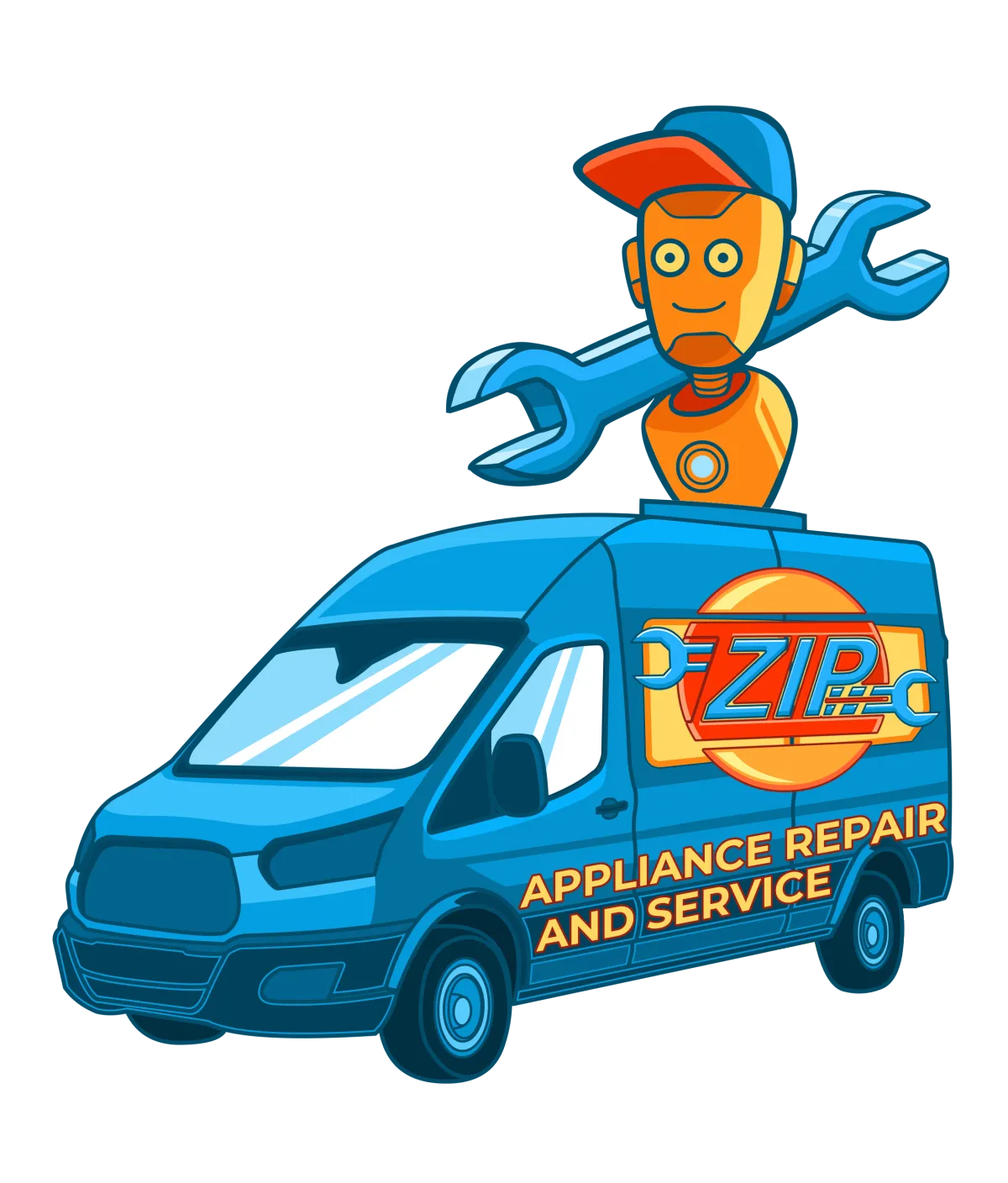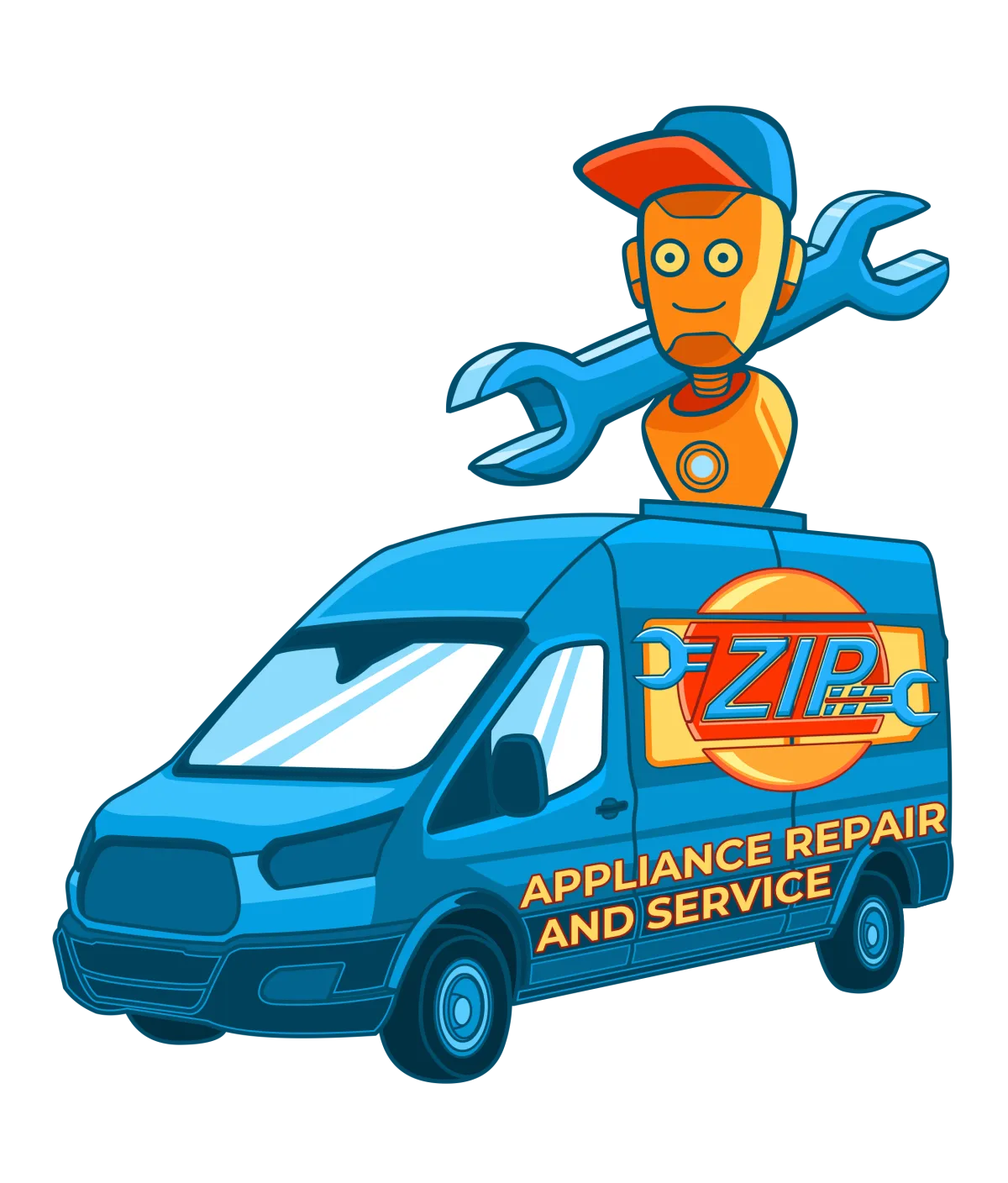THE FASTEST TOOLS IN TOWN
ZIP APPLIANCE REPAIR & SERVICE
Phone: (559) 272-4265
Phone: (559) 272-4265
Appliance Repair Tips For Fresno, CA Residents

Cost-Effective Strategies for Extending the Lifespan of Your Appliances Fast
"Your appliances work hard for you—give them the care they deserve! With a little maintenance and smart habits, you can extend their lifespan, save money, and keep your home running smoothly. Small efforts today lead to big rewards tomorrow." - Appliance Boss
Introduction: Why Appliance Longevity Matters
Appliances are the unsung heroes of our homes, working tirelessly to make our lives easier. But when they break down, the costs can add up quickly—not just in repairs or replacements, but in the inconvenience they cause. The good news? With a little care and attention, you can extend the lifespan of your appliances and save money in the long run. In this blog post, we’ll explore cost-effective strategies to keep your appliances running smoothly for years to come.
Understanding Your Appliances: The Basics of How They Work
Before diving into maintenance tips, it’s helpful to understand how your appliances function. Most appliances rely on a combination of mechanical and electrical components to operate. For example, your refrigerator uses a compressor to cool its interior, while your washing machine depends on a motor to spin the drum. Knowing these basics can help you identify potential issues early.
Key Components That Keep Your Appliances Running: Motors, compressors, seals, and filters are just a few of the parts that keep appliances functioning. Regular maintenance of these components is crucial.
Common Causes of Appliance Wear and Tear: Overuse, lack of cleaning, and exposure to extreme temperatures can all contribute to premature breakdowns.
Regular Maintenance: The Foundation of Appliance Longevity
Routine maintenance is the single most effective way to extend the life of your appliances. It doesn’t have to be complicated or time-consuming—small, consistent efforts can make a big difference.
Simple Cleaning Habits That Make a Huge Difference: Wipe down your refrigerator coils, clean your dishwasher filter, and remove lint from your dryer vent regularly. These tasks prevent buildup that can strain your appliances.
The Importance of Dusting and Ventilation for Appliances: Dust can clog vents and cause overheating. Make sure your appliances have adequate airflow to function efficiently.
The Power of Proper Usage: Avoiding Common Mistakes
How you use your appliances plays a significant role in their longevity. Many common mistakes, like overloading or ignoring manufacturer guidelines, can shorten their lifespan.
Overloading: A Silent Killer of Washing Machines and Dryers: Overloading strains the motor and drum, leading to costly repairs. Stick to the recommended load capacity.
Why You Shouldn’t Ignore Manufacturer Guidelines: User manuals provide valuable information on proper usage and maintenance. Follow them to avoid unnecessary wear and tear.
DIY Repairs: Fixing Minor Issues Before They Escalate
Not every appliance problem requires a professional. With the right tools and a little know-how, you can tackle minor repairs yourself.
Tools Every Homeowner Should Have for Appliance Repairs: A basic toolkit should include screwdrivers, pliers, a multimeter, and lubricants.
Step-by-Step Guide to Troubleshooting Common Problems: If your appliance isn’t working, start by checking the power supply, fuses, and filters. Often, the issue is something simple you can fix on your own.
When to Call a Professional: Knowing Your Limits
While DIY repairs can save money, some problems are best left to the experts. Knowing when to call a professional can prevent further damage.
Signs It’s Time to Bring in an Expert: If you notice burning smells, unusual noises, or persistent issues despite repairs, it’s time to call a technician.
How to Find a Reliable Appliance Repair Service: Look for licensed, insured professionals with positive reviews and transparent pricing.
Energy Efficiency: Saving Money While Extending Lifespan
Energy-efficient practices not only reduce your utility bills but also lessen the strain on your appliances, helping them last longer.
How Energy-Efficient Practices Reduce Wear and Tear: Using appliances during off-peak hours and avoiding overuse can prevent overheating and excessive wear.
Upgrading to Energy-Saving Settings on Your Appliances: Many modern appliances have eco-friendly modes that optimize performance and reduce energy consumption.
The Role of Lubrication and Calibration in Appliance Care
Moving parts need regular lubrication to function smoothly, and calibration ensures appliances operate at optimal levels.
Why Moving Parts Need Regular Lubrication: Lubricating motors, hinges, and other components reduces friction and prevents breakdowns.
How Calibration Can Prevent Uneven Wear: Calibrating appliances like ovens and refrigerators ensures they perform efficiently and evenly.
Water Quality and Your Appliances: What You Need to Know
Hard water can wreak havoc on appliances that use water, leading to mineral buildup and reduced efficiency.
The Impact of Hard Water on Dishwashers and Washing Machines: Mineral deposits can clog pipes and reduce performance.
Installing Water Softeners to Protect Your Appliances: Water softeners remove minerals from water, preventing buildup and extending appliance life.
Seasonal Maintenance Tips for Year-Round Appliance Health
Different seasons bring different challenges for your appliances. Preparing them for seasonal changes can prevent problems down the line.
Preparing Your Appliances for Summer Heat: Ensure your refrigerator and air conditioner have adequate ventilation and are free of dust.
Winterizing Your Appliances for Cold Weather: Protect outdoor appliances and check indoor ones for proper insulation.
The Importance of Replacing Filters and Seals
Filters and seals play a critical role in appliance performance. Replacing them when worn out can prevent leaks and improve efficiency.
How Dirty Filters Strain Your Appliances: Clogged filters reduce airflow and strain motors. Replace them regularly to maintain performance.
When to Replace Worn-Out Seals to Prevent Leaks: Inspect seals on refrigerators, washing machines, and dishwashers for cracks or wear.
Upgrading Parts vs. Replacing Appliances: Making the Right Choice
Sometimes, replacing a single part can breathe new life into an old appliance. Knowing when to repair versus replace can save you money.
Cost-Benefit Analysis of Replacing Key Components: Compare the cost of repairs to the price of a new appliance. If repairs are less than 50% of the replacement cost, it’s often worth fixing.
How to Decide When It’s Time for a New Appliance: Consider factors like age, repair frequency, and energy efficiency when making your decision.
Smart Technology and Appliance Longevity
Smart appliances offer features that can help you monitor and maintain their health, making it easier to extend their lifespan.
How Smart Appliances Can Self-Diagnose Issues: Many smart appliances can detect problems and alert you before they become serious.
Using Apps to Monitor and Maintain Appliance Health: Apps can track performance, schedule maintenance, and even order replacement parts.
The Role of Surge Protectors in Protecting Your Appliances
Power surges can damage sensitive appliance components. Using surge protectors can safeguard your investments.
How Power Surges Damage Electronics: Voltage spikes can fry circuits and render appliances unusable.
Choosing the Right Surge Protector for Your Home: Look for surge protectors with a high joule rating and UL certification.
Storage Tips for Seasonal or Rarely Used Appliances
Proper storage can prevent damage to appliances that aren’t in use for extended periods.
Properly Storing Appliances to Prevent Damage: Clean and dry appliances before storing them, and keep them in a cool, dry place.
How to Revive Appliances After Long Periods of Inactivity: Inspect and test stored appliances before using them again to ensure they’re safe and functional.
The Environmental Impact of Extending Appliance Lifespan
Keeping your appliances longer isn’t just good for your wallet—it’s good for the planet.
Reducing Waste by Keeping Appliances Longer: Fewer replacements mean less waste in landfills.
How Longer-Lasting Appliances Benefit the Planet: Reduced manufacturing and disposal contribute to lower carbon emissions.
Budget-Friendly Upgrades to Modernize Older Appliances
You don’t need to replace old appliances to enjoy modern features. Affordable upgrades can enhance performance and extend lifespan.
Affordable Accessories That Enhance Performance: Items like refrigerator thermometers or washing machine lint traps can improve efficiency.
Retrofit Kits: A Cost-Effective Alternative to Replacement: These kits update older appliances with modern features, saving you money.
Teaching Your Family Good Appliance Habits
Getting everyone in your household on board with appliance care can make maintenance easier and more effective.
How to Get Everyone on Board with Maintenance Routines: Create a schedule and assign tasks to family members.
Fun Ways to Teach Kids About Appliance Care: Turn maintenance into a game or challenge to make it engaging for children.
Conclusion: Small Efforts, Big Rewards
Extending the lifespan of your appliances doesn’t require a lot of time or money. By following these cost-effective strategies, you can keep your appliances running smoothly for years to come. Start implementing these tips today, and enjoy the peace of mind that comes with a well-maintained home.

Cost-Effective Strategies for Extending the Lifespan of Your Appliances Fast
"Your appliances work hard for you—give them the care they deserve! With a little maintenance and smart habits, you can extend their lifespan, save money, and keep your home running smoothly. Small efforts today lead to big rewards tomorrow." - Appliance Boss
Introduction: Why Appliance Longevity Matters
Appliances are the unsung heroes of our homes, working tirelessly to make our lives easier. But when they break down, the costs can add up quickly—not just in repairs or replacements, but in the inconvenience they cause. The good news? With a little care and attention, you can extend the lifespan of your appliances and save money in the long run. In this blog post, we’ll explore cost-effective strategies to keep your appliances running smoothly for years to come.
Understanding Your Appliances: The Basics of How They Work
Before diving into maintenance tips, it’s helpful to understand how your appliances function. Most appliances rely on a combination of mechanical and electrical components to operate. For example, your refrigerator uses a compressor to cool its interior, while your washing machine depends on a motor to spin the drum. Knowing these basics can help you identify potential issues early.
Key Components That Keep Your Appliances Running: Motors, compressors, seals, and filters are just a few of the parts that keep appliances functioning. Regular maintenance of these components is crucial.
Common Causes of Appliance Wear and Tear: Overuse, lack of cleaning, and exposure to extreme temperatures can all contribute to premature breakdowns.
Regular Maintenance: The Foundation of Appliance Longevity
Routine maintenance is the single most effective way to extend the life of your appliances. It doesn’t have to be complicated or time-consuming—small, consistent efforts can make a big difference.
Simple Cleaning Habits That Make a Huge Difference: Wipe down your refrigerator coils, clean your dishwasher filter, and remove lint from your dryer vent regularly. These tasks prevent buildup that can strain your appliances.
The Importance of Dusting and Ventilation for Appliances: Dust can clog vents and cause overheating. Make sure your appliances have adequate airflow to function efficiently.
The Power of Proper Usage: Avoiding Common Mistakes
How you use your appliances plays a significant role in their longevity. Many common mistakes, like overloading or ignoring manufacturer guidelines, can shorten their lifespan.
Overloading: A Silent Killer of Washing Machines and Dryers: Overloading strains the motor and drum, leading to costly repairs. Stick to the recommended load capacity.
Why You Shouldn’t Ignore Manufacturer Guidelines: User manuals provide valuable information on proper usage and maintenance. Follow them to avoid unnecessary wear and tear.
DIY Repairs: Fixing Minor Issues Before They Escalate
Not every appliance problem requires a professional. With the right tools and a little know-how, you can tackle minor repairs yourself.
Tools Every Homeowner Should Have for Appliance Repairs: A basic toolkit should include screwdrivers, pliers, a multimeter, and lubricants.
Step-by-Step Guide to Troubleshooting Common Problems: If your appliance isn’t working, start by checking the power supply, fuses, and filters. Often, the issue is something simple you can fix on your own.
When to Call a Professional: Knowing Your Limits
While DIY repairs can save money, some problems are best left to the experts. Knowing when to call a professional can prevent further damage.
Signs It’s Time to Bring in an Expert: If you notice burning smells, unusual noises, or persistent issues despite repairs, it’s time to call a technician.
How to Find a Reliable Appliance Repair Service: Look for licensed, insured professionals with positive reviews and transparent pricing.
Energy Efficiency: Saving Money While Extending Lifespan
Energy-efficient practices not only reduce your utility bills but also lessen the strain on your appliances, helping them last longer.
How Energy-Efficient Practices Reduce Wear and Tear: Using appliances during off-peak hours and avoiding overuse can prevent overheating and excessive wear.
Upgrading to Energy-Saving Settings on Your Appliances: Many modern appliances have eco-friendly modes that optimize performance and reduce energy consumption.
The Role of Lubrication and Calibration in Appliance Care
Moving parts need regular lubrication to function smoothly, and calibration ensures appliances operate at optimal levels.
Why Moving Parts Need Regular Lubrication: Lubricating motors, hinges, and other components reduces friction and prevents breakdowns.
How Calibration Can Prevent Uneven Wear: Calibrating appliances like ovens and refrigerators ensures they perform efficiently and evenly.
Water Quality and Your Appliances: What You Need to Know
Hard water can wreak havoc on appliances that use water, leading to mineral buildup and reduced efficiency.
The Impact of Hard Water on Dishwashers and Washing Machines: Mineral deposits can clog pipes and reduce performance.
Installing Water Softeners to Protect Your Appliances: Water softeners remove minerals from water, preventing buildup and extending appliance life.
Seasonal Maintenance Tips for Year-Round Appliance Health
Different seasons bring different challenges for your appliances. Preparing them for seasonal changes can prevent problems down the line.
Preparing Your Appliances for Summer Heat: Ensure your refrigerator and air conditioner have adequate ventilation and are free of dust.
Winterizing Your Appliances for Cold Weather: Protect outdoor appliances and check indoor ones for proper insulation.
The Importance of Replacing Filters and Seals
Filters and seals play a critical role in appliance performance. Replacing them when worn out can prevent leaks and improve efficiency.
How Dirty Filters Strain Your Appliances: Clogged filters reduce airflow and strain motors. Replace them regularly to maintain performance.
When to Replace Worn-Out Seals to Prevent Leaks: Inspect seals on refrigerators, washing machines, and dishwashers for cracks or wear.
Upgrading Parts vs. Replacing Appliances: Making the Right Choice
Sometimes, replacing a single part can breathe new life into an old appliance. Knowing when to repair versus replace can save you money.
Cost-Benefit Analysis of Replacing Key Components: Compare the cost of repairs to the price of a new appliance. If repairs are less than 50% of the replacement cost, it’s often worth fixing.
How to Decide When It’s Time for a New Appliance: Consider factors like age, repair frequency, and energy efficiency when making your decision.
Smart Technology and Appliance Longevity
Smart appliances offer features that can help you monitor and maintain their health, making it easier to extend their lifespan.
How Smart Appliances Can Self-Diagnose Issues: Many smart appliances can detect problems and alert you before they become serious.
Using Apps to Monitor and Maintain Appliance Health: Apps can track performance, schedule maintenance, and even order replacement parts.
The Role of Surge Protectors in Protecting Your Appliances
Power surges can damage sensitive appliance components. Using surge protectors can safeguard your investments.
How Power Surges Damage Electronics: Voltage spikes can fry circuits and render appliances unusable.
Choosing the Right Surge Protector for Your Home: Look for surge protectors with a high joule rating and UL certification.
Storage Tips for Seasonal or Rarely Used Appliances
Proper storage can prevent damage to appliances that aren’t in use for extended periods.
Properly Storing Appliances to Prevent Damage: Clean and dry appliances before storing them, and keep them in a cool, dry place.
How to Revive Appliances After Long Periods of Inactivity: Inspect and test stored appliances before using them again to ensure they’re safe and functional.
The Environmental Impact of Extending Appliance Lifespan
Keeping your appliances longer isn’t just good for your wallet—it’s good for the planet.
Reducing Waste by Keeping Appliances Longer: Fewer replacements mean less waste in landfills.
How Longer-Lasting Appliances Benefit the Planet: Reduced manufacturing and disposal contribute to lower carbon emissions.
Budget-Friendly Upgrades to Modernize Older Appliances
You don’t need to replace old appliances to enjoy modern features. Affordable upgrades can enhance performance and extend lifespan.
Affordable Accessories That Enhance Performance: Items like refrigerator thermometers or washing machine lint traps can improve efficiency.
Retrofit Kits: A Cost-Effective Alternative to Replacement: These kits update older appliances with modern features, saving you money.
Teaching Your Family Good Appliance Habits
Getting everyone in your household on board with appliance care can make maintenance easier and more effective.
How to Get Everyone on Board with Maintenance Routines: Create a schedule and assign tasks to family members.
Fun Ways to Teach Kids About Appliance Care: Turn maintenance into a game or challenge to make it engaging for children.
Conclusion: Small Efforts, Big Rewards
Extending the lifespan of your appliances doesn’t require a lot of time or money. By following these cost-effective strategies, you can keep your appliances running smoothly for years to come. Start implementing these tips today, and enjoy the peace of mind that comes with a well-maintained home.
If your dryer has been giving you problems, contact Zip Appliance Repair & Service at (559) 272-4265

Appliance Repair In A Zip
If you need a dryer repair call our Team at (559) 272-4265, or visit our online scheduling page to request service.
Appliance Repair
HAVE A QUESTION, CALL (559) 272-4265

Online Offers
Take advantage of our online discount offers - save time and money...

Residential & Commercial appliances
See what our company can do for you

Appliance Repair Tips
If your appliance is not working properly...

1405 Commercial Way ste 100
Bakersfield, CA 93309
Lic # 1116346
Equipment We Sevice
- A Call To Confirm Your Appointment Time
- A Email Detailing Your Assigned Technician
- Information Needed Before The Repair Can Be Started
- An Estimate Of Work To Be Done
© 2025 ZIP APPLIANCE REPAIR & SERVICE LLC







